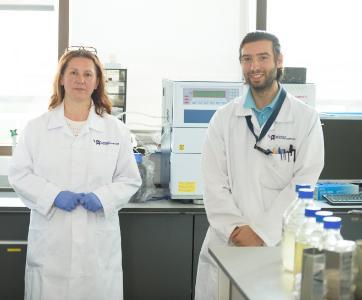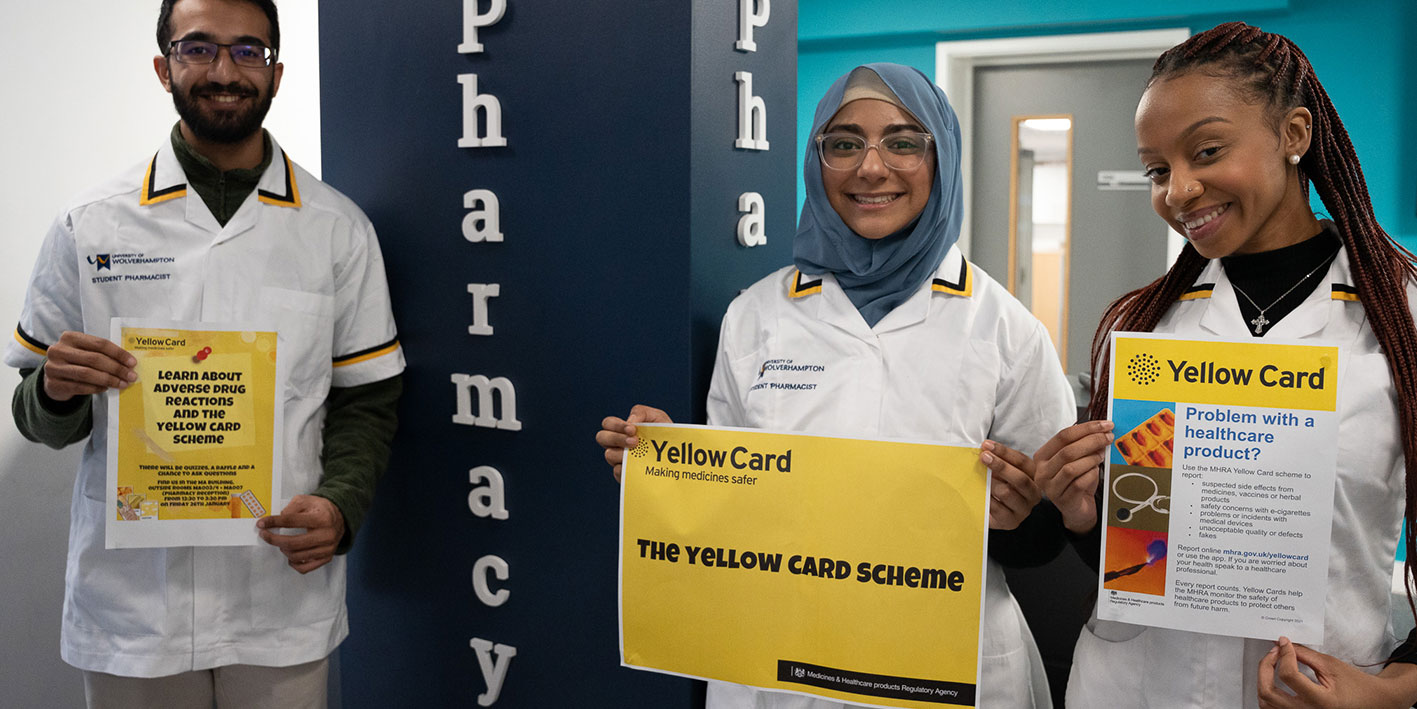
Can an algae by-product be used in acidic drinks to help protect teeth?
Research academics at the University of Wolverhampton have received funding from the Biotechnology and Biological Sciences Research Council (BBSRC) Algae-UK to investigate if a substance made by bacteria that could be used as an additive in acidic drinks can be created cheaper by using algae.
The substance, a biopolymer called poly-gamma glutamic acid (γ-PGA) is biodegradable, water soluble, edible, versatile, and environmentally friendly.

The team, made up of Iza Radecka, Professor in Biotechnology and Mattia Parati, a Biotechnology researcher in the University’s Faculty of Science and Engineering, hope to be able to use the biopolymer to create an effective additive for acidic drinks and food products in order to prevent and protect teeth from acid erosion.
It’s also hoped that it could be used in a number of different other ways, including food, medicine, water treatment and agriculture, along with creating eco-friendly make-up.
The chemical process to create γ-PGA is very expensive, and therefore is unfeasible for mass production. At present, bacterial fermentation using soy is the only practical route for γ-PGA production at the industrial level, but the process is also still expensive.
The team is currently carrying out tests on the polymer.
Professor Radecka said: “We hope that we’ll be able to use both micro and macro-algae as inexpensive, eco-sustainable feed stocks for the bacterial cultivation that leads to y-PGA as a viable by-product. Our research project anticipates making the manufacture of y-PGA a viable new system that can be used as an additional income revenue stream for algae industries.”
Mattia said: “For example, the concept of creating a biofuel from algae has been an exciting prospect in recent years to provide an alternative to fossil fuels. After making a biofuel, you’re left with lots of proteins, carbohydrates and other molecules which can be converted into a range of added value products such as y-PGA.”
The creation of additional revenue streams is part of the biorefinery model; replicating the popular oil refinery system.
The project’s other partners are AlgaeCytes Ltd and the Scottish Association for Marine Science.
AlgaeCytes is a biotechnology company that harnesses the potential of microalgae to provide a new generation of health and wellbeing solutions.
The Scottish Association for Marine Science (SAMS) is the UK's oldest independent marine science organisation delivering research, education and enterprise for a sustainable marine environment.
The proof of concept project has received £40,000 from the BBSRC.
Find out more about the University's research in these publications:
- Research Matters - showcasing our research successes and news from the sector.
- The Wolverhampton Briefing - our new quarterly update on our vital research activity.
Anyone looking to study at the University of Wolverhampton should register for one of our forthcoming Open Days.
ENDS
For more information please contact the Corporate Communications Team.


/prod01/wlvacuk/media/departments/digital-content-and-communications/images-2024/240328-Varsity-Line-Up-Resized.jpg)
/prod01/wlvacuk/media/departments/digital-content-and-communications/images-18-19/220325-Engineers_teach_thumbail.jpg)
/prod01/wlvacuk/media/departments/digital-content-and-communications/images-2024/240404-Digital-Humanities-Training-Resized.jpg)
/prod01/wlvacuk/media/departments/digital-content-and-communications/images-2024/240320-Uzbekistan-Resized.jpg)
/prod01/wlvacuk/media/departments/digital-content-and-communications/images-2024/240229-The-Link-Resized.jpg)
/prod01/wlvacuk/media/departments/digital-content-and-communications/images-2024/240404-Pharmacy-Students-Resized.jpg)

